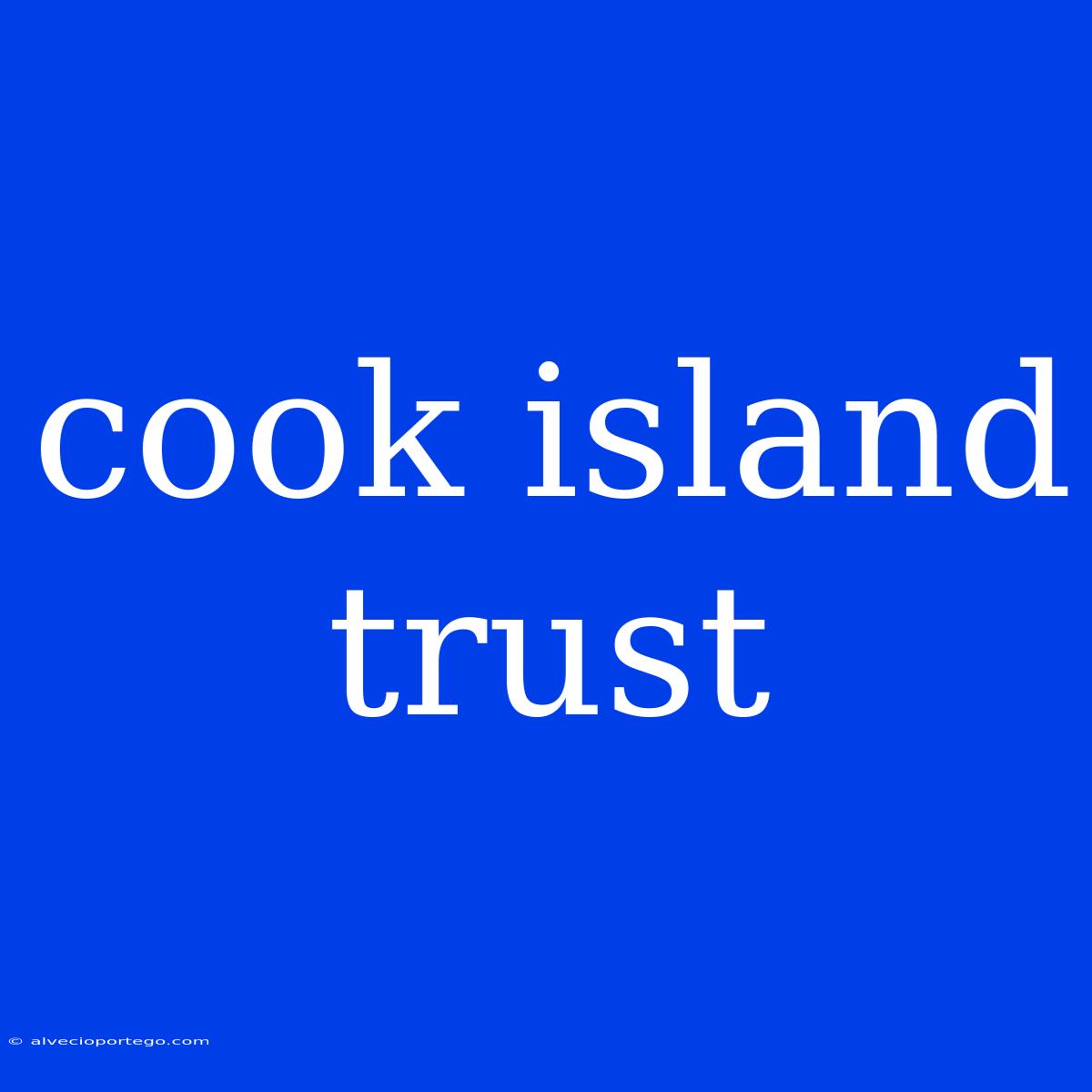The Cook Islands Trust: A Look at the Country's Financial Haven
The Cook Islands, a stunning archipelago in the South Pacific, is also home to a thriving financial industry, with the Cook Islands Trust being a significant part of it. This article will delve into the features, benefits, and considerations surrounding this popular financial instrument.
Understanding Cook Islands Trusts
A Cook Islands Trust is a legal entity designed to hold and manage assets for the benefit of specific beneficiaries. It functions as a separate legal entity from its creator (the settlor), offering a range of potential benefits, including:
- Asset Protection: The assets held within the trust are legally separate from the settlor's personal assets, providing protection from creditors and potential lawsuits.
- Tax Planning: The Cook Islands has a favorable tax regime, offering potential tax benefits for both the settlor and beneficiaries.
- Privacy: The Cook Islands has strict confidentiality laws, ensuring the privacy of the trust and its beneficiaries.
- Succession Planning: Trusts can facilitate the smooth transfer of wealth to future generations, often with tax advantages.
- International Investment Opportunities: Trusts can be used to invest in a wide range of assets, both domestically and internationally.
Types of Cook Islands Trusts
There are several types of Cook Islands Trusts, each tailored to specific needs:
- Discretionary Trust: The trustee has wide discretion in managing the trust assets and distributing income and capital to beneficiaries.
- Fixed Trust: The terms of the trust are fixed, with clear stipulations about the distribution of assets and income.
- Purpose Trust: Created for a specific purpose, such as charitable giving or environmental conservation.
- Bare Trust: The trustee holds the trust assets for the benefit of the beneficiary, with little or no discretion.
Key Considerations
While offering potential benefits, setting up a Cook Islands Trust involves important considerations:
- Cost: There are costs associated with establishing, managing, and administering a trust.
- Complexity: Trust structures can be complex, requiring legal advice and expertise.
- Regulatory Compliance: Cook Islands Trusts are subject to specific regulations and reporting requirements.
- Transparency: The Cook Islands has made efforts to enhance transparency and combat financial crime.
- Beneficiary Rights: Trusts need to clearly define the rights and obligations of beneficiaries.
Conclusion
The Cook Islands Trust can be a powerful tool for asset protection, tax planning, and succession planning. However, it's crucial to consult with experienced legal and financial professionals to determine if a Cook Islands Trust is the right fit for your specific needs and goals. Remember, careful consideration, legal advice, and professional guidance are essential for navigating the complexities of this type of financial structure.

